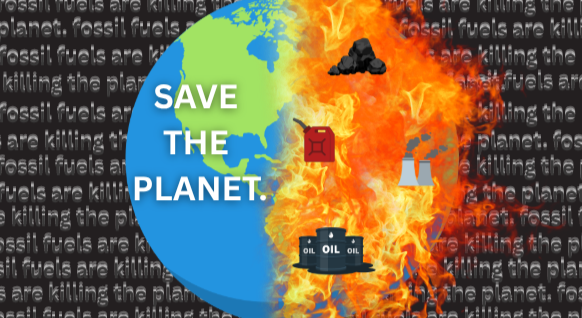According to the United Nations (UN), Fossil fuels -coal, oil, and gas- are the largest contributors to global climate change, accounting for over 75 percent of global greenhouse gas emissions and nearly 90 percent of all carbon dioxide emissions. That is why Canadian activist Tzeporah Berman and her campaign group created an initiative that aims to gather nations, cities, and corporations to rapidly phase out the use of oil, coal, and gas for the greater good of the environment.
You might be asking yourself, what are fossil fuels and how do they impact the environment? As defined by Statistics, fossil fuels is a generic term for nonrenewable energy sources such as coal, natural gas, petroleum products, non-renewable wastes, etc. These fuels originate from plants and animals that existed in the geological past but can also derive from industrial processes from other fossil fuels. The important thing to understand here is that humans rely on fossil fuels heavily as they power most of the world’s electricity, transportation, and industrial production.
To put things simply, fossil fuels negatively impact the environment in many ways. For one, burning coal, oil, and gas releases harmful chemicals that pollute the air we breathe by causing smog, acid rain, and respiratory problems. As fossil fuels are burned, they release greenhouse gases, which mostly consist of carbon dioxide and methane, both terrible gases to ingest. These gases get trapped in Earth’s atmosphere, like a blanket, causing global warming and climate change.
As a society, we are so reliant on something that is actively contributing to the contamination and destruction of our planet. Therefore, Berman and her campaign created a solid project in an effort to protect our planet from irreversible damage and save the human race. The treaty already has overwhelming support. As the Guardian has stated, more than 120 cities have passed motions to support the fossil fuel non-proliferation treaty, and they are increasingly being joined by subnational governments such as California. Even more impressively, 17 countries are participating in the development of the treaty, along with 10 countries showing significant interest.
If we don’t make a move on this issue soon, these actions will have consequences that negatively impact both the environment and humanity beyond repair.
“Us being reliant on fossil fuels as our main energy source adds so much carbon and other types of particulate matter into ecosystems,” AP Environmental Science teacher Ronny Rayan said. “As humans, it could cause us to have health issues. If you look in China, where there is more Industry, there is data that shows that people in that environment have more chances of getting cancer, health problems, and chronic illnesses. “
Above all, the Fossil Fuels Non-Proliferation Treaty continues to campaign for its mission to phase out fossil fuels. As of now, its focus is on building international support for them to move forward in their plan of action. Without support, this project is impossible. The important thing to take away from this is that fossil fuels are, in fact, our main energy source; however, at the same time, it is damaging our planet. If we don’t do something about it soon, the damage will become irreversible and our planet will no longer be habitable. When is enough, enough?















